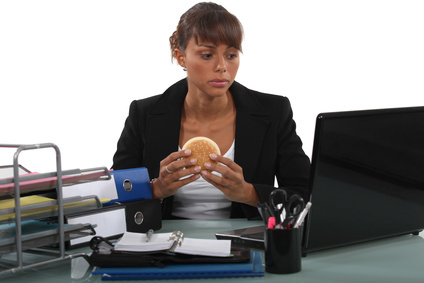HELENE SCHNEIDER BLOG
Tuning In to Intuition

| |
Self Care: Life Balance
| |
Practicing Self Care: Exercise
Your body: its both your vehicle and the house you live in. Just like you make sure you maintain your vehicle, get tune ups and keep it running well, exercise is the other aspect of self care (along with sleep and eating) that contributes to your body functioning well. Just like you make sure your house, its plumbing, electrical, etc. is maintained in working order, exercise contributes to keeping your body in working order. All the research validates a simple principle for health and hi functioning longevity: “Use it or lose it”. This applies to the body as well as brain. Regular exercise not only contributes to the body continuing to function well as you age but contributes to your brain functioning well as you age too.

Now, think about all the things that might get in the way, whether external things: job, kids, weather, or internal things like tiredness, not feeling like it, etc. There will always be reasons you can come up with! How will you deal with these things? Knowing which external things can interfere, come up with a strategy to deal with each thing. Knowing your internal blocks, the good news is: you don't have to want to exercise, you don't have to be into it, you can be tired, not feel good, have no enthusiasm whatsoever. Feeling better comes after you exercise, not before! You have to remind yourself of this over and over: I'll feel so much better afterwards. Ignore the voice in your head giving you reasons not to. What would you, as a friend, say to a friend who said those things but you knew wanted to make this change? Say those things to yourself and get going, we're only talking 10-20 minutes! These are all ways I help as a life coach: focus on setting manageable, achievable goals, anticipating inner or outer obstacles, developing strategies to deal with them and being accountable to someone to help you stay on track. Alternatively, committing to exercise with someone (friend, colleague, partner, dog) or telling everyone your plan can also help you do it and be accountable. Support always helps.
| |
Practicing Self Care: You Are What You Eat

The way to work with yourself if you're an emotional eater is to first recognize this is what's even happening. You may not be aware of your feelings right before you're eating, you may truly think you're hungry! So, the first step is to pause and notice what you're feeling. Sad? Mad? Scared? Something else? Can you take a few minutes to feel what you're feeling? This means to allow yourself to experience the emotion, let yourself process or “digest” the feeling. Feelings are like waves: they have a beginning, middle and end, they start, feel stronger in the middle and then if you allow the feeling to run its course, it will naturally decrease. If you breathe and let the feeling happen, it will eventually be over with. Most clients tell me they are afraid they'll cry “forever' or be mad or scared with no end. But its really when you “resist” a feeling and try to stuff it or stop it or avoid it, then its prolonged, like you hit a pause button on it and it stays stuck, suspended, unprocessed, undigested in your space. Unprocessed feelings get backlogged and stored up and can show up as body symptoms: headaches, digestive issues, assorted pains, illnesses. When you learn to identify and process your feelings, you learn you can 'handle' them, you learn you can stay with yourself and take care of your feelings directly instead of using food.
Once you can identify what you're feeling, ask yourself what do you need that's not food? You may need to talk to someone, ask if they can just listen for a few minutes to what you're feeling. Maybe you need a hug or someone to just be with you. If you're alone, write down whatever you're feeling, unedited, in a journal. Some people like to do something creative or listen to or play music. Maybe go for a walk or do more vigorous exercise to help you allow the feeling to move through you. Or take a few minutes and just sit, ask yourself what's the feeling and allow it. Or, listen to one of the guided meditations I have on my Media page. (link). Many people need help with their relationship with food and managing feelings because they weren't taught how to deal with and process feelings in a healthy way and many people were taught, usually by example, to use food in unhealthy ways.
To distinguish emotional eating from actual hunger, start to recognize what are the signs when you are actually hungry? Is your stomach growling? Some people feel a little light headed, some get a little irritable, some get low energy, some get shaky, headachy. When you can identify actual hunger, you can become able to tell the difference between eating when hungry and emotional eating.
Then, when you do eat when you're actually hungry: How are you eating? Are you eating unconsciously? Meaning: you're not even conscious of the taste, smell, texture of the food in your mouth, enjoying the pleasure of food. Many people eat while driving, watching TV, or working and barely notice what they're eating. Could you take at least 5 minutes to stop and eat and only focus on enjoying the food? If you can't find 5 minutes then contact me because there's clearly other issues, like being overloaded, you need help with!
Are you eating too fast? It actually takes 20 minutes for it to register from stomach to brain that you are full. So when you eat fast, you eat too much because your stomach hasn't has enough time for your brain to get the message that you've had enough. That's why you feel so full/stuffed after about 20 minutes and realize “Uh, I ate too much”. If you eat more slowly, then when you hit 20 minutes, you'll naturally feel you've had enough. Or, eat a little, wait 20 minutes, and then see how much more you really want.

Finally, what are you eating? What you eat has a significant affect on how you feel physically, mentally and emotionally. How do you feel after eating certain foods? Are you eating foods that don't agree with you and have you feel tired, queasy, indigestion, bloated, gassy or worse? For example, many people are noticing they feel better if they don't eat gluten even if they don't technically have any diagnosed condition. Why not try gluten free for a week or two and notice if you feel any difference? Many clients report feeling less bloated. Other suggestions to try for a week or two: no sugar, no processed foods, no fast food. Consider it an experiment: eliminate something to notice how you feel.
Another aspect of certain foods that have been shown to affect how we feel is probiotics, beneficial bacteria in your gut. The latest research in psychology and biology, “Psychobiotics” (you heard it here first!) has found probiotics can influence levels of neurotransmitters (brain chemicals) that affect depression, anxiety, stress hormones, even pain! Probiotics are found in foods such as yogurt, kefir, cultured cheese, cultured butter, cultured sour cream, miso, sauerkraut, kimchi, pickles, dark chocolate, kombucha tea. Pick one of these to eat a day or there are supplements in capsules.
There are many more ways you can learn to take care of yourself through how and what you eat. If you'd like help with your relationship with food, you know how to reach me!
| |
Practicing Self Care: Sleep

- For some people it's a simple as deciding and committing to go to sleep at a certain time instead of being inconsistent. What time do you know would be better for you? Do it for a week and notice the difference in how you feel and function.
- Get a blue light filter for your phone, tablet or computer, even TV. There are actual thin screens you can buy that go on the device (I have this) or there are apps available. This is helpful if you use your devices at night before bed and who doesn't nowadays? The shortwave blue light from devices can really effect your sleep because it has your brain think it's daytime and affects melatonin which is the hormone that get secreted as it becomes dark to help you sleep.
- Aim towards not using any device for at least an hour before the time you want to be asleep. (I know, that's hard). More than an hour is better but any step in the direction of not staring at a blue screen before bed helps. Start slowly if you need to wean yourself by having no screen time for 15 minutes before sleep. Do this for a week then increase to ½ hour for a week, then keep increasing time. Extremely important for kids too. Reading anything on actual paper (a book!) with a regular old light bulb is better because neither has the shortwave LED blue in it.
- Another act of self care you could take during time away from a device screen before sleep: Write in a journal. This is one of the best exercises that has been studied and found to reduce stress, anxiety, depression and improve mood and well-being: Take just a few minutes to write down 5 things you're grateful for from that day. It can be little things like: I had a delicious lunch, there was a seat on BART, I had a pleasant interaction with someone at work, warm coffee felt and tasted good, I took a 10 minute walk, the weather was nice, I was kind to a stranger, I had a good hair day. Or bigger things like: I completed a particular task, I gave myself a break instead of beating myself up over something, I gave someone else a break instead of expressing irritation with them, I ate healthy food all day, I took dog for a long refreshing walk, I have a comfortable place to live, I have a job that enables me to live here in the Bay Area. Try to think of different things each day. The goal is to do this as a daily practice right before going to sleep.
- Listen to a guided meditation to relax and unwind. I have a number of them on my Media page that I have personally recorded if you'd like to hear my familiar voice. Try the first one called “Letting Go”. Sweet dreams should follow!
| |
Welcome to Helene's Blog

